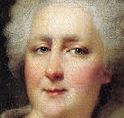This morning I was going through my small backlog of newspapers, built up during our recent stays out of town for the Akron Tomorrow’s World Special Presentations, and I came across this nice, brief article by Robert K. Massie in the weekend edition of the Wall Street Journal (Nov. 12-13): “Catherine the Great’s Lessons for Despots.”

In the article, Massie (who has a new book out, Catherine the Great: Portrait of a Woman—not his first about a Russian great) points out that the word “despot” is much more value neutral than its current connotations imply, and that it applies to any person wielding absolute power in a nation, even if the person is kind, beneficent, and a blessing to their peoples. Today, of course, the word is used as a pejorative almost entirely reserved for regimes with rulers who seem selfishly and cruelly interested only in their own, personal welfare and continued hold power. As Massie notes, “For most of the past millennium, most nations on Earth were governed by rulers who could be described as despots. Some were popular and accepted; others hated; a few overthrown. Some were even called ‘benevolent.'”
As he describes in his article (and surely in more detail in his book), Catherine the Great of Russia aspired to be a benevolent despot, aiming to achieve for her people many of the “enlightened” rights and privileges that the Western world now takes for granted. Her results were mixed and did not generally succeed — reminding us that no human truly has “absolute power” — but it seems an interesting tale nonetheless. I might even get Massie’s book and add it to my “to read list” (and given the current state of that list and the pace of my progress through it, I may actually get around to reading the book in the year 2525).
My favorite paragraph in the article was this one:
Near the end of her reign Catherine was asked how she understood the “blind obedience with which her orders were obeyed.” Catherine smiled and answered, “It is not as easy as you think…. I examine the circumstances, I take advice, I consult the enlightened part of the people, and so in this way I find out what sort of effect my laws will have. And when I am already convinced in advance of good approval, then I issue my orders and have the pleasure of observing what you call blind obedience.”
Those who criticize certain forms of governance in knee-jerk fashion could learn something from her. However much it is abused, the supposedly-inherent evil of “one man rule” is, shall we say, a bit exaggerated, to say the least.
Of course, the universe’s greatest despot is coming one day: Jesus Christ. And that is a good thing! Passages such as Isaiah 9:6-7 and Isaiah 11:1-10 make it very clear: Once He arrives, we will begin to see despotism done right.
Related articles
- Catherine the Great’s Lessons for Despots (online.wsj.com)
- Book Beginnings: Catherine the Great (thejoyofbooking.com)
- Robert K. Massie’s Latest Subject Is Catherine the Great (nytimes.com)

